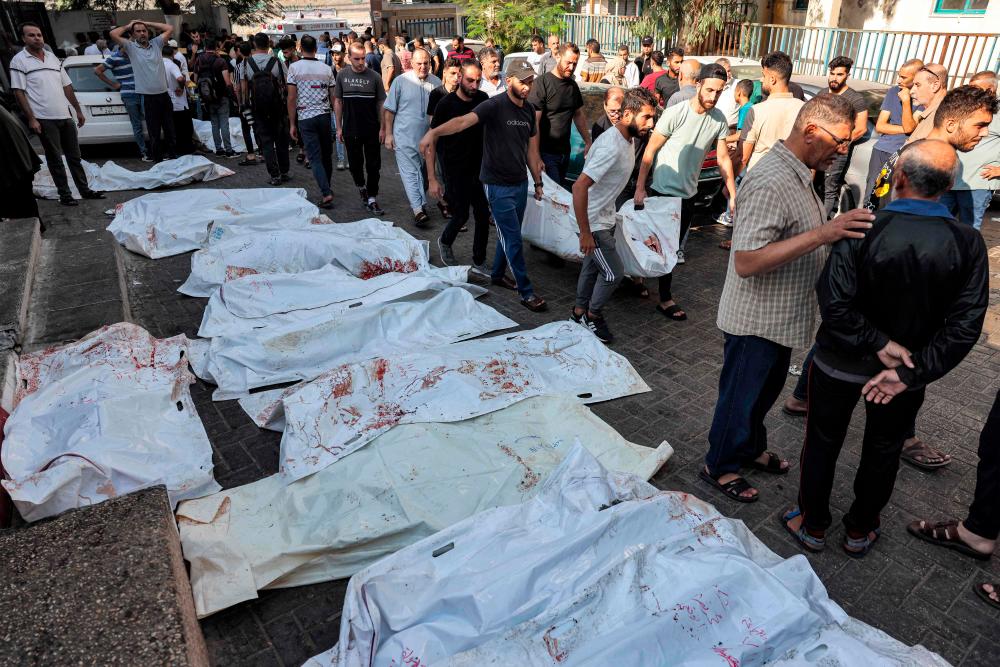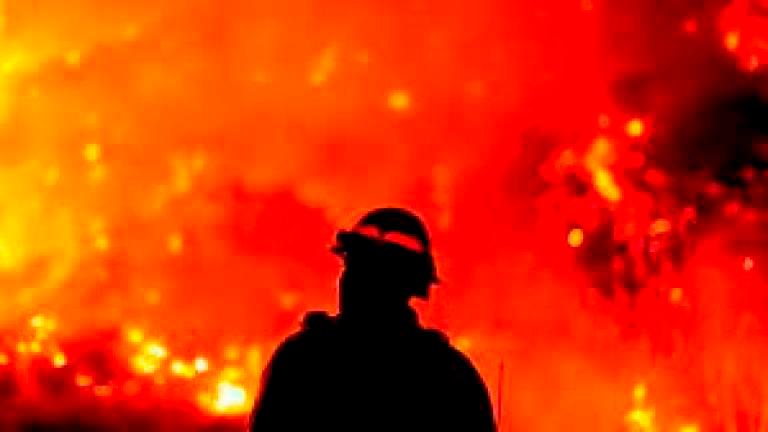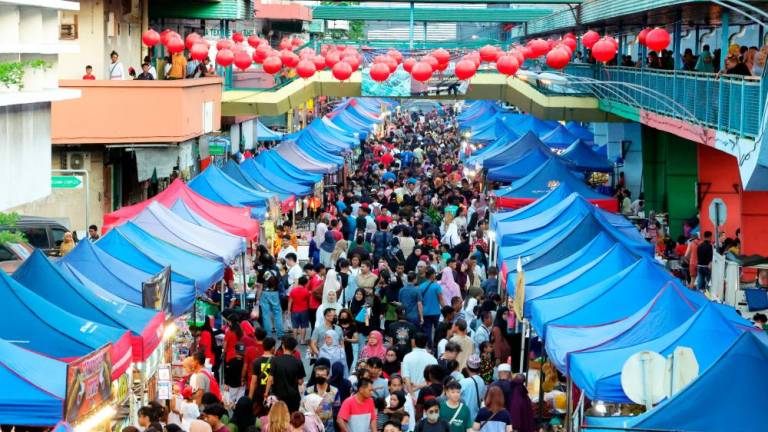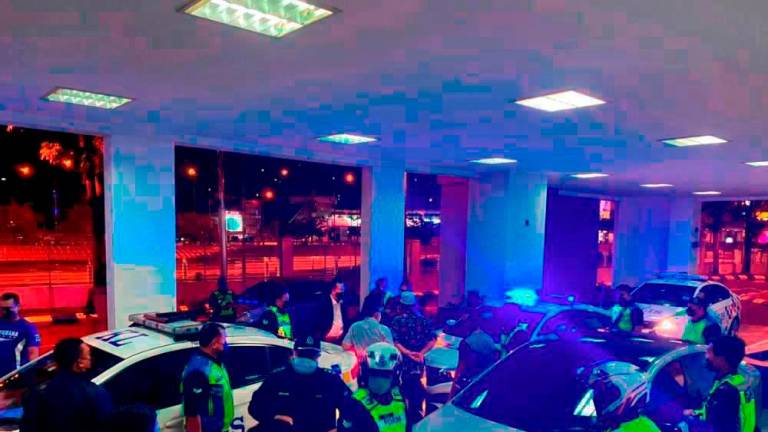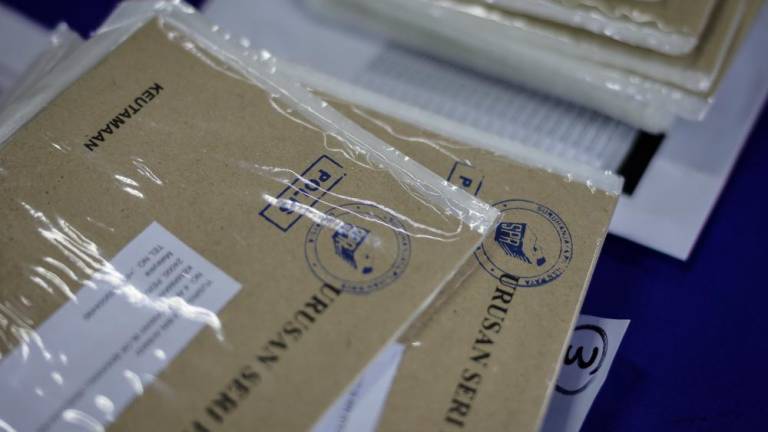JERUSALEM: Thousands of people -- Israelis, Palestinians and foreigners -- have been killed since Hamas militants attacked Israel from the Gaza Strip nearly a week ago.
Most were civilians, with horror stories emerging about the militants' rampage and the devastating military retaliation it provoked.
Israel has vowed to crush Hamas and looks poised to send ground troops into the enclave, as calls mount for a humanitarian corridor to be opened and offers to broker peace come in.
This is what we know about the war so far:
- How did it start? -
Hundreds of Hamas gunmen attacked Israel from Gaza at dawn on Saturday, on the Jewish holiday of Simchat Torah.
The Iran-backed Islamists said they fired around 5,000 rockets into Israel, 50 years and one day after the start of the 1973 Arab-Israeli war.
The offensive, dubbed “Operation Al-Aqsa Flood”, saw them breach security fences surrounding the heavily fortified enclave using explosives and bulldozers.
They then streamed into Israel on motorbikes, pickup trucks, motorised gliders and speed boats, targeting nearby communities in the south.
At a music festival near Kibbutz Reim, close to Gaza, hundreds of young Israelis and foreigners were gunned down at close range.
Those who managed to escape were shot at in the desert scrub or as they tried to flee in their cars.
Some hid under bloodied bodies until the military arrived hours later.
Israel said about 270 were killed in total.
More than 100 civilians, including children, were killed at the Kfar Aza kibbutz, according to Israeli forces.
Many died when their homes were set on fire, they added. But Hamas disputed the account, calling it a “fake and false Israeli narrative”.
- How has Israel reacted? -
Israel declared war on Hamas on Sunday and has since fired thousands of munitions at Gaza targets, flattening entire neighbourhoods and sending frightened residents fleeing for safety.
On Friday, the army said it had conducted “localised raids” inside the Gaza Strip in the last 24 hours “to complete the effort to cleanse the area of terrorists and weaponry”.
“During these operations, there was also an effort to locate missing persons,“ it added.
The Israeli military called on residents of the northern Gaza Strip, including Gaza City, to evacuate their homes and head south “for their safety”.
Thousands heeded the call, packing their belongings into suitcases and bags, and leaving on foot or in any vehicle they could.
The United Nations and others asked for the order to be rescinded, as the 1.1 million people affected -- nearly half of Gaza's entire population of 2.4 million -- had nowhere to go.
UN humanitarian agency OCHA, citing Palestinian authorities, said more than 2,500 homes have been destroyed or made uninhabitable by the bombing.
The UN agency for Palestinian refugees (UNRWA) is sheltering more than 60 percent of the 423,000 people displaced in recent days in the Gaza Strip, which has been blockaded since 2006.
Israel’s Defence Minister Yoav Gallant on Monday ordered a “complete siege” of Gaza, meaning “no electricity, no food, no water, no gas”.
The UN criticised that as a possible violation of international law.
Israel’s military has called up around 300,000 reservists and massed tens of thousands of troops and heavy armour near Gaza, for a campaign it has dubbed “Swords of Iron”.
Prime Minister Benjamin Netanyahu has formed an emergency unity government for the duration of the war, and said Friday that initial bombardments were “just the beginning”.
His office has denied claims from human rights groups that Israeli forces are using the incendiary weapon white phosphorus.
- What is the death toll? -
Israel says Hamas gunmen have killed more than 1,300 people in Israel. Most were civilians.
Nearly 1,900 Gazans -- again most of them civilians and including over 610 children -- have been killed in retaliatory air strikes, authorities in Gaza said.
- What about the hostages? -
Israel estimates Hamas has taken more than 150 people hostage -- Israelis, foreigners and dual nationals.
Hamas has threatened to kill them one by one if civilian targets are bombed without advance warning.
On Friday, it said at least 13 hostages, including foreigners, were killed in Israeli bombardments in the previous 24 hours.
The International Committee of the Red Cross said it was in contact with Hamas and Israel to try to facilitate the release of the hostages.
Hamas has ruled out negotiating a prisoner swap with Israel while the military operation continues.
German Foreign Minister Annalena Baerbock, on a visit to Jerusalem, said Hamas was using Gaza residents as a “shield”.
On Friday, US President Joe Biden vowed to do “everything in our power” to free Americans taken by Hamas.
- Is the conflict limited to Gaza? -
No. There have been days of back-and-forth shelling with the Iran-backed Shiite militant group Hezbollah on Israel's northern border with Lebanon.
The Reuters news agency said one of its video journalists was killed on Friday in the border area of southern Lebanon.
Several other journalists were wounded.
The Israeli army said earlier it was firing in the border area.
Israel on Tuesday exchanged fire with militants in Syria, where Iran backs the government, after the army said munitions were fired towards the occupied Golan Heights.
On Thursday, Israeli strikes knocked out of service Syria's two main airports at Damascus and Aleppo.
Israel’s ambassador to Germany, Ron Prosor, said the strike on Damascus airport was intended to stop “weapons deliveries from Iran”.
In the occupied West Bank, Israeli fire killed at least nine Palestinians during rallies of solidarity with Gazans, taking the death toll to 44 since last Saturday.
The Organization of Islamic Cooperation accused Israel of seeking to “forcibly displace the Palestinian people” and seeking to shift “the humanitarian crisis... to neighbouring countries”.
- What has Hamas said? -
Hamas chief Ismail Haniyeh vowed to press ahead with “the battle to liberate our land and our prisoners languishing in occupation prisons”.
There were about 5,000 Palestinians held in Israeli prisons, including 160 children and more than 1,000 who were detained without charge, according to a July UN report.
Hamas has called on “resistance fighters in the West Bank” as well as in “Arab and Islamic nations” to join the battle.
It has also rejected Israel's call for Gazans to evacuate the north of the enclave.
- How has the world reacted? -
The United States has led Western support for Israel, with President Biden vowing “rock solid and unwavering” backing for Israel.
Secretary of State Antony Blinken delivered the message in person on Thursday, with Defence Secretary Lloyd Austin adding further weight Friday.
Washington has sent additional military support to Israel, including missiles for its “Iron Dome” interceptor system, and is deploying hostage experts.
Biden urged Israel to exercise restraint and follow the rules of war in its response, while NATO said it had to do so with “proportionality”.
The UK is sending maritime patrol and surveillance aircraft to the eastern Mediterranean “to track threats to regional stability such as the transfer of weapons to terrorist groups”, London said.
Tensions mounted with angry protests against Israel in Arab nations after Friday prayers.
Iran has celebrated the Hamas assault, but has repeatedly denied allegations it had a role in it.
Saudi Arabia, pressed by Washington for months to conclude a normalisation agreement with Israel, denounced the displacement of Palestinians and attacks on “defenceless civilians”.
- What's happening in Gaza? -
Fuel, food and water are running low in Gaza because of the Israeli strikes and siege, prompting calls for immediate humanitarian aid to be sent.
The first shipment arrived in Egypt's Sinai on Thursday from Jordan but it was not immediately clear when it would get into Gaza.
Calls are mounting from the United Nations, aid agencies and governments to avoid a humanitarian disaster, by providing safe spaces for Gazans. -AFP



